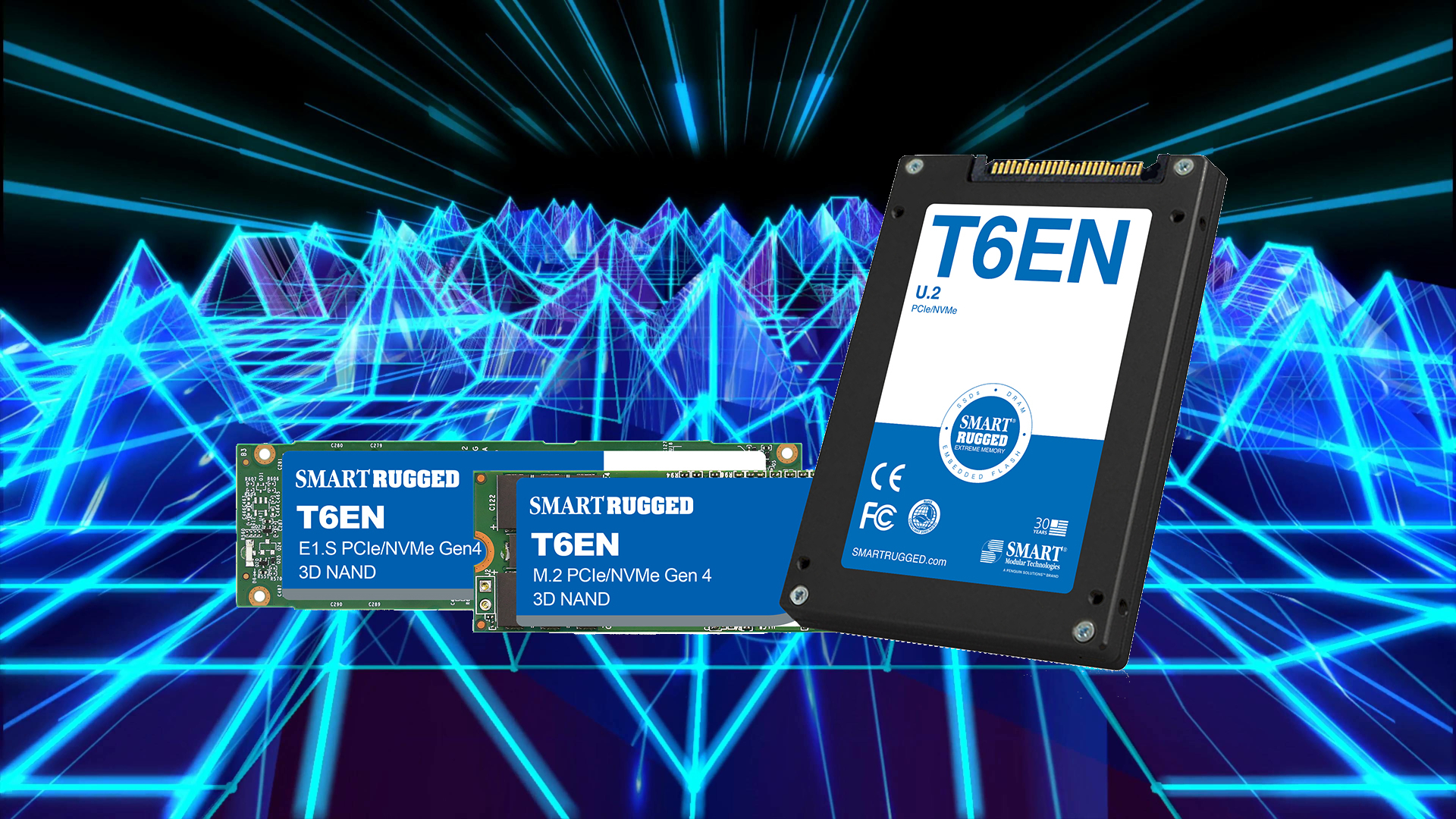
California-based integrated memory and storage maker Smart Modular Technologies is introducing its T6EN SSDs for aerospace, defense, and industrial purposes. These drives use 3D TLC NAND and are advertised as high-speed, high-capacity, and high-security for U.2 up to 15TB and up to 8TB for E1.S and M.2 2280 interfaces.
The 'ruggedness' claims are made because SMART uses a set of hardware and software implementations. SMART uses a thicker PCB and a higher margin for routing signals within the drive inside a durable enclosure. To add another level of deterrence against specific environments, the T6EN drives have a conformal coating that gives protection against moisture, thermal shock, static, vibration, and contamination, according to SMART's press release.
Moreover, it cherry-picks components with the highest reliability during eight hours of burn-in testing with a variable temperature range. This is needed as this series of SSDs is intended to work under higher operating temperatures and environments from -40 degrees Celsius to +85 degrees Celsius.
The T6EN SSDs use AES-XTS 256-bit encryption and proprietary security features. Mike Guzzo, the senior director of SMART's Rugged range of drives, explains, "Our new T6EN SSDs deliver a rich, ruggedized feature set coupled with our proprietary security algorithms, erase trigger, and hardware write-protection."
Additionally, the T6EN range of storage drives is OPAL 2.0 compliant, a hardware-based security standard for Self-Encrypting Drives. The benefit is that hardware-based encryptions do not hurt the performance of the systems and are far more secure than software-based solutions. There have been times when SSDs with software-based options have been bypassed and were found to have encryption issues.
There are pros and cons for Opal-compliant drives, which would require its buyers to have personnel who can handle significant deployment and management. However, it is also noted that Self-Enabling Drives are not designed for in-flight data protection and, hence, are not part of the certification.
There is always a need to add security to any computation components, especially for mission-critical and industrial uses, with hardware-level certifications and the application of hardware and software-based protection—open-source or proprietary—or both. That said, those who have deployed these drives can attest to their security and reliability features under a specific workload and environment used for a long time.







